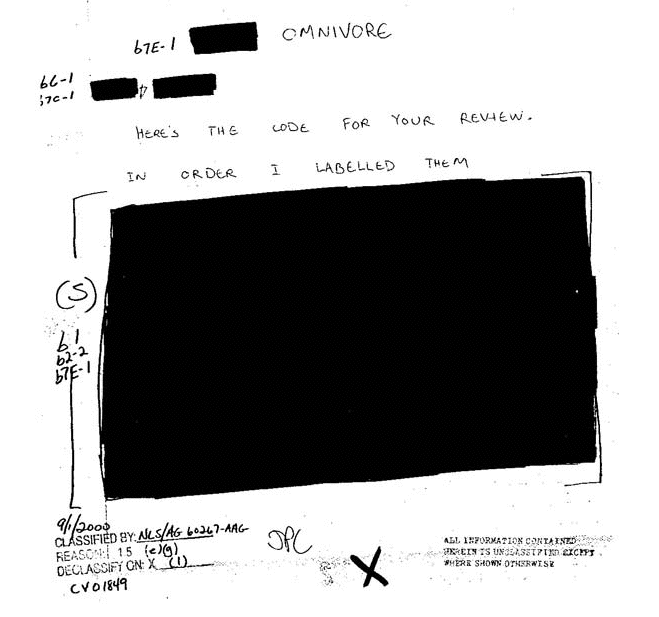Margaret Atwood has come up with a device for remotely signing books to save her the trouble of early flights and mini-bar food according to stories like, Online answer to writer’s angst, (The Guardian, Charlotte Higgins, Jan. 8, 2005.)
The company she has founded to develop this device is called Unotchit (U No Tch It – get it?) While having a video conference with an author followed by some personal message (spell checked, of course) faxed to me might be OK, I don’t see how this will substitute for book-signing which is about presence – being close to the authority. Hell, a book is mediated authority, why would I want more of the same instead of a moment of real presence?
What’s interesting is how gentle bloggers and journalists are being with Atwood. It’s a stupid idea that says a lot about Atwood that none of us want to consider because we like her writing so much.
StumbleUpon
StumbleUpon is an interesting social web tool where you get a tool bar that lets you rate sites for friends or stumble to a site that others think you might like. It encourages serindipitous stumbling across things – something people have felt was missing from the IT world. Of course, there is commercial side to StumbleUpon – for a fee people can promote their sites, see the “Sponsors” page,
2. Purchase Promotion
StumbleUpon can deliver your site directly to interested stumblers. If you have a high quality site and would like to increase your traffic and get community feedback, you may Request Promotion of your content.
EPIC: Carnivore Documents

Omnivore Source Code FOIA Document
Did the FBI build use text analysis for network-tapping? I found an interesting page on the Electronic Privacy Information Centre about Carnivore and Omnivore (its predecessor), two Internet monitoring systems created by the FBI. EPIC has a EPIC Carnivore Page with a summary and scans of documents recieved through Freedom of Information Requests. See also EPIC Carnivore FOIA Documents. The documents are fascinating given all the lines blacked out that you can try to guess at. There is a beauty to these documents with heavy black regions and “Secret” crossed out all over. Note how EPIC uses this aesthetic in their annual report.
Continue reading EPIC: Carnivore Documents
O’Reilly History of Programming Languages
O’Reilly has a poster on The History of Programming Languages that you can download in PDF form that looks neat. They also have a wiki page
on the subject with some pointers on printing it and stuff.
On the wiki page I found a link to a lighter and web version of a timeline on Computer Languages History (preview).
Comparing: Jack Lynch
Text Analysis with Compare is an essay by Jack Lynch on approaches to comparing texts to find allusions from one to another. It lays out some simple methods and their advantages/disadvantages. I think we are going to try to implement some of these in TAPoRware.
Infocult: A great blog
Infocult: Information, Culture, Policy, Education is a great blog by Bryan Alexander that Patrik Svensson pointed me to.
Apple and the Mini Mac
The Saturday Globe has a beg story on the Mac mini, Jobs and Apple, Globetechnology: We’re in the era of Jobs II (Saturday, Jan. 15, 2005, by David Akin). In a companion peice online, that is a “Globe and Mail Update” titled, Apple jabbed by price point, Jack Kapica makes the point that the price point of $499 that Apple is hitting in the US doesn’t work for Canada when it becomes $630 Canadian. He also complains about the price for Apples, though that’s another story.
What no one noticed is that Mac mini is not that far from an iPod. Could Apple adapt the mini by adding a small LCD and battery to turn it into a Mac response to something like the OQO? At some point of miniaturization I won’t be synching my iPod with my computer, my iPod will be the computer that I dock when at the office and listen to on the way home.
podSites: Simple hypertexts for the iPod
Audrey pointed me to a very neat idea and site, podSites.com. The site describes how to develop simple hypertexts or podSites for the iPod Notes area. The trick is that the iPod supports HTML links in the text file notes to other notes and links to audio that can play. The podSites site has instructions on how to create a podSite and “podCasting” (blogging for iPods) and so on. The site can be viewed in six basic colours – cute!
Google Zeitgeist for 2004
The Google Zeitgeist which summarizes the most popular queries for the year is up now. There is also and Interactive Edition that uses Flash to show you the most popular queries and images by month.
More on Photo Mosaics
I got an e-mail from Joseph Francis drawing attention to a blog entry about pioneering work he did on Photo Mosaics. He was following up a post here on Photo Mosaics.
Digital Artform is the name of the blog, and it has a number of longer posts about digital art effects.